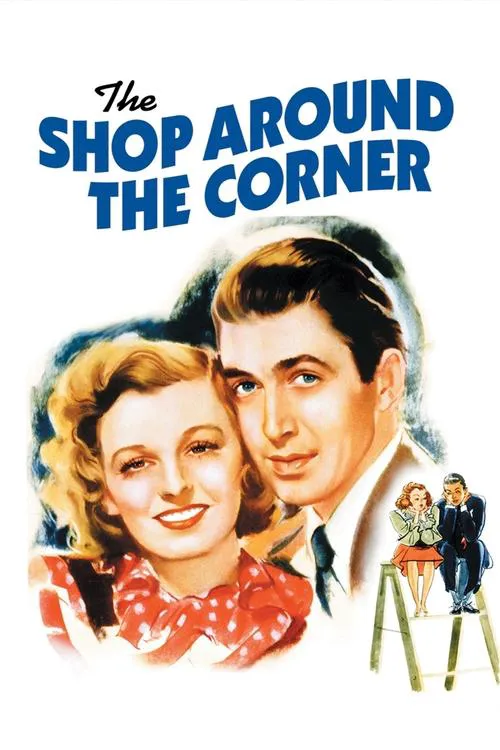The Shop Around the Corner

Plot
Set in the picturesque city of Budapest, Hungary, during the early 1930s, 'The Shop Around the Corner' is a heartwarming romantic comedy directed by Ernst Lubitsch. The film's narrative is an enchanting blend of humor, wit, and tender drama, skillfully interwoven by the maestro of European cinema. The movie's central theme revolves around the lives of two employees at Matuschek's Hungarian Gift shop, Alfred Kralik and Klara Novak, played by James Stewart and Margaret Sullavan, respectively. Kralik is a quiet and introverted employee who appears detached from the rest of the world. His reserved nature gives the impression that he is a melancholic individual, constantly struggling with his emotions. Klara, on the other hand, is portrayed as a lively and vibrant individual, always radiating positivity and enthusiasm. Her bubbly demeanor clashes with Kralik's reserved nature, resulting in an instant dislike for one another. As co-workers, they engage in a relentless barrage of sarcastic remarks, disdainful glances, and petty disagreements, creating a hostile work environment. Unbeknownst to them, this animosity has a peculiar origin. They have, in fact, become pen pals, under the pseudonyms "Benjamin and Helene." Their anonymous exchange has been ongoing for months, with each writing heartfelt letters, sharing intimate thoughts, and confessing deep desires to the other. Their epistolary relationship transcends the boundaries of their mundane lives, as they begin to reveal their innermost feelings and aspirations. Through their letters, Kralik and Klara gradually open up to each other, sharing a common bond and understanding. As their pen pal relationship deepens, they inadvertently discover that the person they have grown to cherish is the very person they despise in real life. This revelation sets them on a new path, as they attempt to reconcile their love for each other with the undeniable animosity that exists between them at work. The movie takes a delightful turn when Kralik and Klara begin to navigate their contradictory emotions. They must now juggle their affection for each other in the realm of their anonymous letters, while maintaining the charade of being adversaries in reality. Lubitsch cleverly employs the technique of visual juxtaposition to highlight the dichotomy of their dual lives. Their struggles to reconcile their love with their public persona are heightened by the presence of the Matuschek family. Mr. Matuschek, the owner of the shop, has been informed of Kralik's secret pen pal relationship and uses this information to blackmail him, forcing Kralik into a difficult situation. He is subsequently ordered to write a set of unpleasant letters to Klara under his alter ego 'Benjamin,' which he reluctantly agrees to. The climax of the film brings Kralik and Klara to the turning point. Realising the depth of their emotions for one another, they decide to reveal their secret identity and reconcile their love. The movie concludes with a tender reprise of the Matuschek family holiday party that opened the film, providing a touching sense of closure. Lubitsch's clever use of this technique serves to reinforce the cyclical nature of Kralik and Klara's love, transforming the initial disdain into an all-consuming affection. In 'The Shop Around the Corner,' Lubitsch crafts an enchanting world where the lines between reality and illusion blur. As the audience, we are transported into a world where true love can flourish in the unlikeliest of places – a quaint Hungarian gift shop, amidst the backdrop of pre-war Europe. The film stands as a testament to the power of love and its ability to transform even the most hostile of relationships into tender connections.
Reviews
Recommendations




